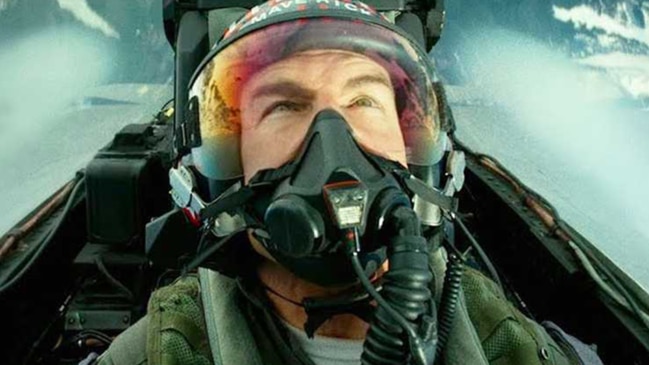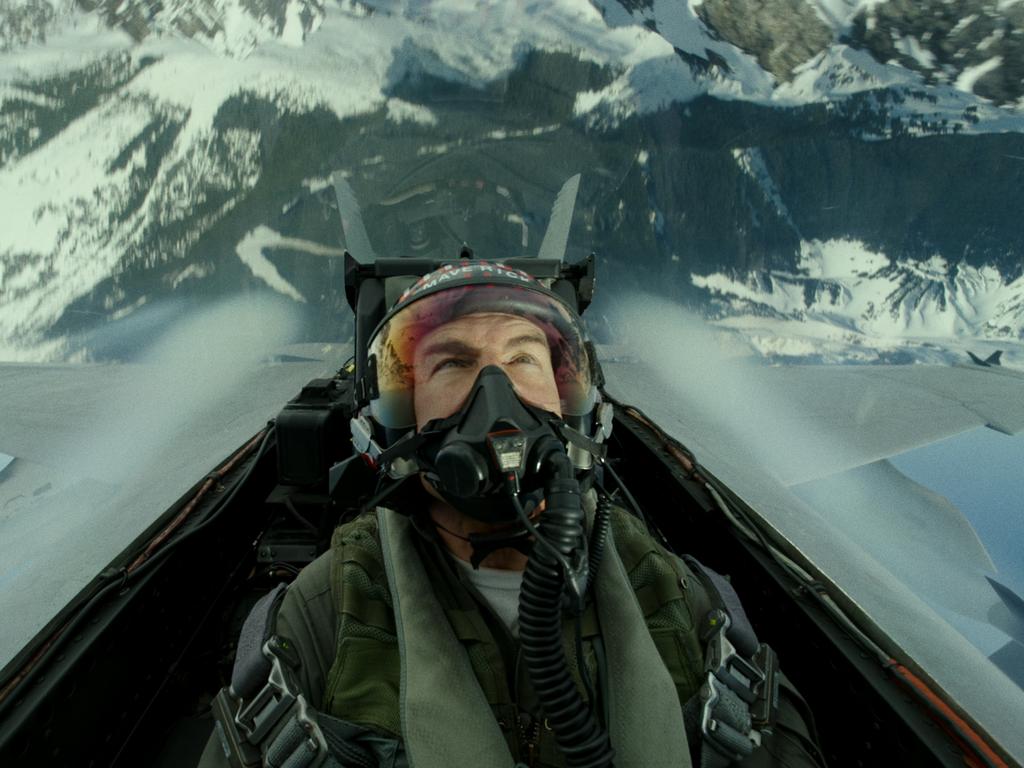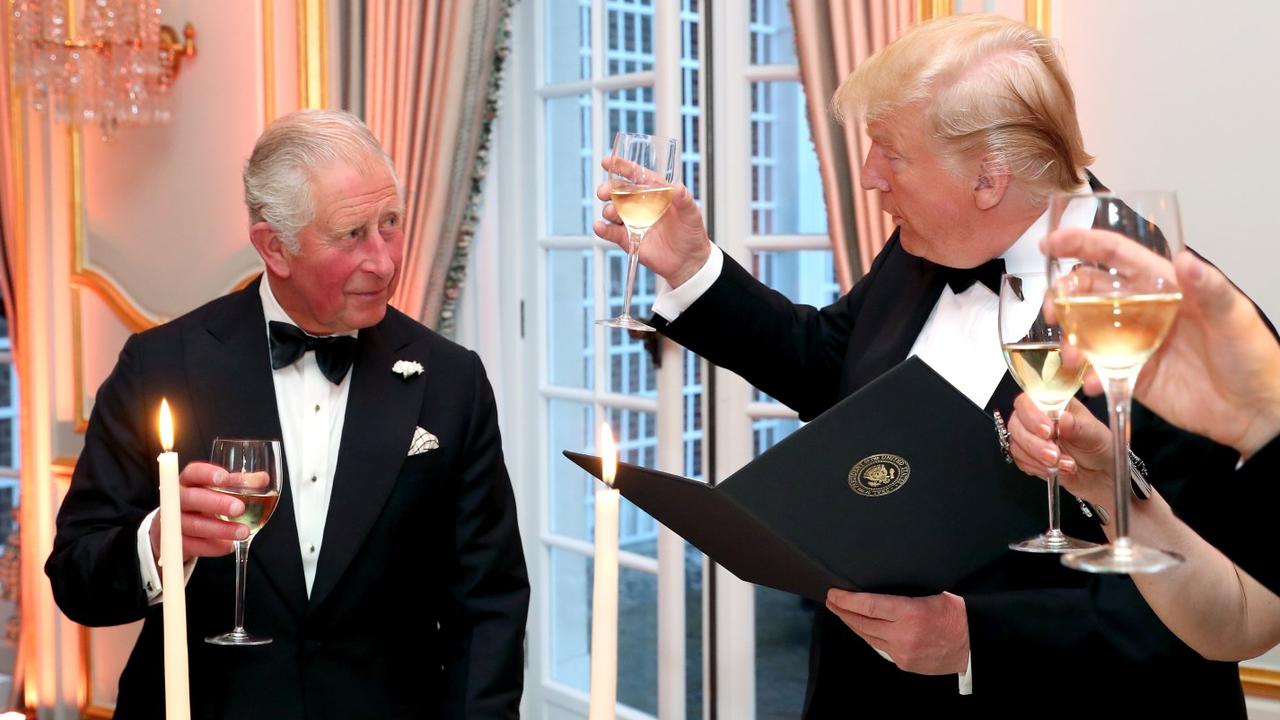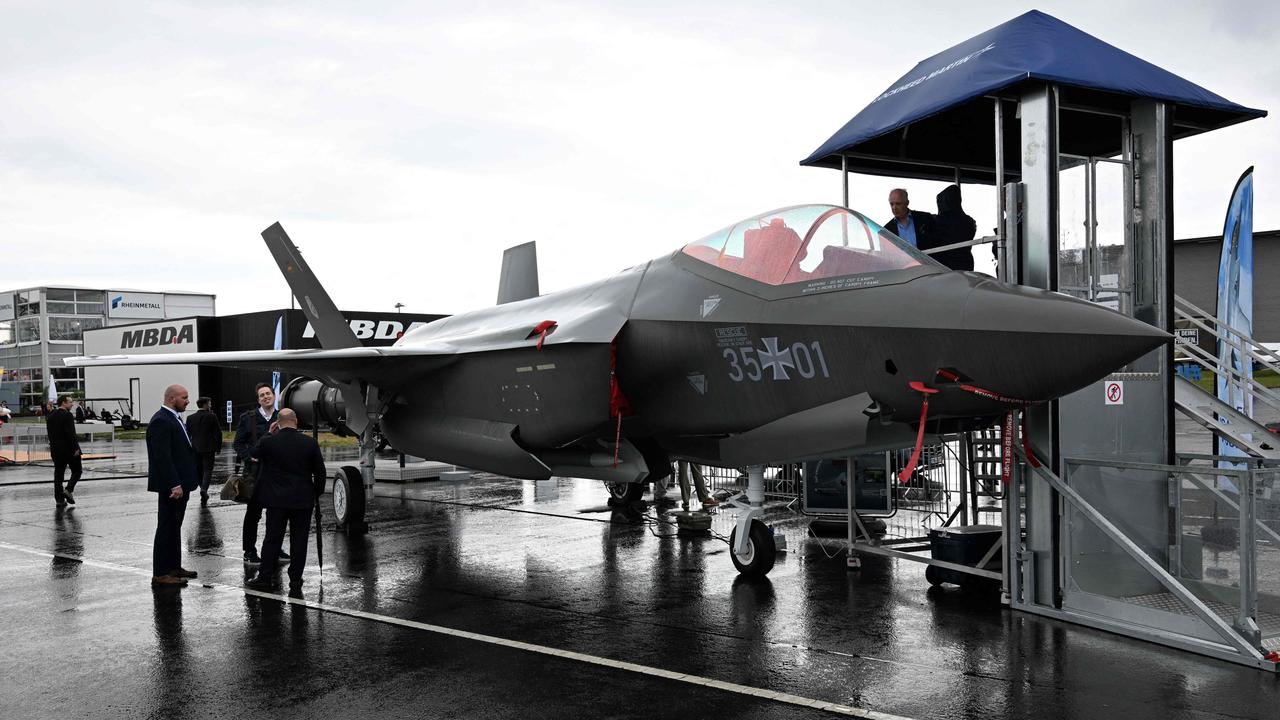
It’s a fleeting moment, hardly noticeable unless you’re looking for it. But, like the film itself, it may represent one of the most symbolically memorable shifts in American popular culture of recent decades.
Cruise had worn the jacket in the original movie half a lifetime ago. When Paramount Pictures began promoting the sequel in 2019 the trailers included the scene, but the jacket had mysteriously lost the two flags. In their place were a couple of generic, unidentifiable motifs.
It was just another shameful example of Hollywood’s craven obeisance to the Chinese Communist Party. The producers were hoping to promote and distribute the movie in China, where the Taiwanese symbol is officially regarded with venomous disapproval. So they simply removed it, along with the hated Japanese symbol too. But when the film was released last month, the original flags on the patch were back.
There’s a cynical explanation for Paramount’s change of heart. The film never did get official approval from the hyper-vigilant Chinese censors. It was considered way too much of a celebration of US military prowess for an increasingly sensitive and nationalist Beijing. Tencent, the giant Chinese technology company that had a 12.5 per cent stake in the film’s production, dropped out in 2019, burnt by the searing heat of the deteriorating US-China diplomatic relationship. So Paramount had nothing to gain by continuing with the abject kowtow. In fact, reinstating the motifs could be expected to play well in Japan and especially Taiwan - and it surely did. Audiences in the breakaway republic have been bursting into rapturous applause at the scene.

But Paramount’s little, belated show of defiance is significant nonetheless. It’s the latest, most visible signal of the closing of an especially dishonourable era for American capitalism. For decades US businesses, in pursuit of profit, have sucked up to the Chinese authorities, wilfully ignored the mounting evidence of human rights abuses there, recklessly transferred state-of-the-art American technology to an increasingly powerful adversary and operated with a complaisant cupidity they would never get away with back home. In the process they have helped enrich and empower China, enabling its transformation into a power to rival the US and fuelling its drive to spread its influence around the world.
That’s changing rapidly. The bilateral economic relationship goes on, of course: indeed it remains the most important in the world, with US companies still making hundreds of billions of dollars there. But there’s a recognition now, and political pressure to back it up, that the days of abject obedience to Beijing are over. Russia’s invasion of Ukraine, and China’s support for it, have further hastened a re-evaluation of the wisdom of making money in countries that are directly inimical to US and western interests.
But in its wider message the new movie represents an even larger break with contemporary American culture. Top Gun: Maverick is a rare thing: an unabashed celebration of America, an affirmation of the goodness of its cause, the heroism of its best, and, perhaps most surprisingly, the virtue of what it stands for, not what it should be.
The dream-makers of Hollywood have spent decades depicting traditional America as a dystopian nightmare: ruled by corrupt politicians, raped by predatory capitalists, shamed by a long, ignoble history of racism, sexism and every other form of human oppression imaginable. Now here is a production that invites the audience back to the forgotten story-telling of a simple pride.
There’s not the merest nod to the progressive causes and icons seemingly obligatory to every modern production. Somehow Joseph Kosinski, the director, and Jerry Bruckheimer, the producer, didn’t get the memo about ensuring the plot involves some gay, minority or transgendered character coming to the rescue of a world ravaged by a straight, white, cisgendered patriarch. There are women and black characters in leading roles of course, but they are there exactly as they should be, natural members of the team, organic elements of the plot, not specially identified representatives of some oppressed minority.
And (spoiler alert) just as it did in 1986, America triumphs, through the courage and ingenuity of its people and perhaps, it is hinted, through the simple goodness of its values.
The original Top Gun was not just a box-office hit. It was a recruiting sergeant for the US navy. This one may have the same effect. To the surprise of no one who understands the way most real Americans feel about their country, the sequel has been a massive success. As of earlier this week the film had grossed more than $US400 million ($570 million), making it the biggest film of the year, even reviving hope that the theatrical movie experience has not died a pandemic death.
The film is probably only a fleeting departure from the dreary march of cultural self-annihilation to which America and the rest of the West have condemned themselves. But, like the unexpected return of that patch on the jacket, it’s a brief, welcome reminder that there are still some things about our civilisation worth defending - and some people willing to defend them.
The Times







There’s a scene in Top Gun: Maverick, the long-in-the-making sequel to the iconic 1986 movie of US naval pilots’ derring-do, in which Tom Cruise’s character, his back to the screen, sports a signature leather bomber jacket. Clearly visible on the now late-middle-aged Pete “Maverick” Mitchell’s jacket, supposedly a sartorial tribute to his father, is a patch stitched into the leather commemorating the Far East tour of a real-life naval ship, the USS Galveston. In addition to some naval insignia, the patch includes two flags of countries visited on the mission: the rising sun of Japan, and the blue sky, white sun, red field of Taiwan.